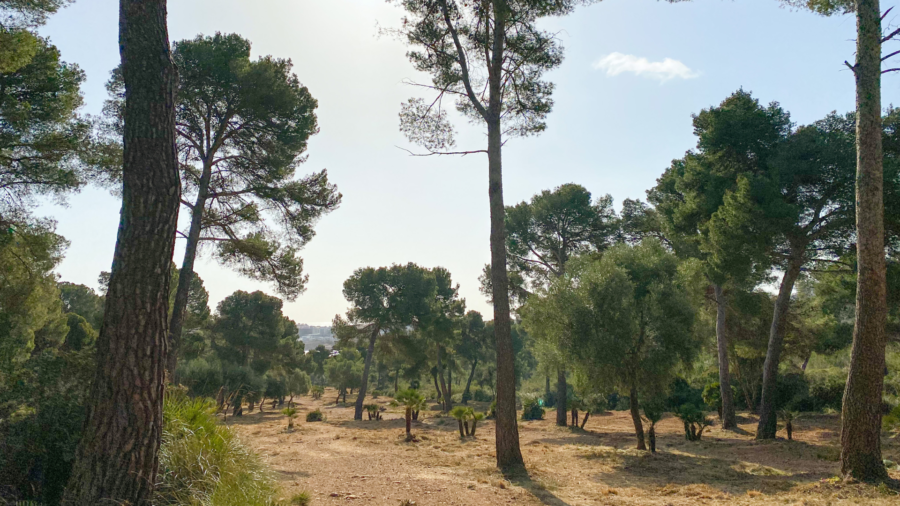This letter was sent to the US Senate and House Agriculture Committees from the 1t.org US Forest Policy Working Group. You can add your organization to the letter here.
April 25th, 2023
Updated May 2, 2023
| The Honorable Debbie Stabenow Chairwoman U.S. Senate Committee on Agriculture, Nutrition & Forestry 328A Russell Senate Office Building Washington, DC 20510
|
The Honorable John Boozman Ranking Member U.S. Senate Committee on Agriculture, Nutrition & Forestry 328A Russell Senate Office Building Washington, DC 20510
|
| The Honorable Glenn “GT” Thompson Chairman House Committee on Agriculture 1301 Longworth House Office Building Washington, DC 20515 |
The Honorable David Scott Ranking Member House Committee on Agriculture 1010 Longworth House Office Building Washington, DC 20515 |
Dear Chairwoman Stabenow, Chairman Thompson and Ranking Members Boozman and Scott:
The 1t.org US Chapter is a platform for collective action to conserve, restore, and grow 1 trillion trees worldwide. The U.S. Chapter – a coalition of companies, organizations, and individuals – focuses on advancing reforestation efforts in the United States through collaboration, innovation, and community engagement. Our goal is to promote a more sustainable future by leveraging the power of trees to mitigate climate change, improve biodiversity, and support the well-being of local communities.
On behalf of the undersigned organizations we are pleased to share our coalition’s 2023 Farm Bill forestry priorities:
• Conserve. Increasing the long-term protection and conservation of forest resources and wildlife habitat from threats such as wildfire, insects, and diseases, as well as promoting the use of prescribed fire as an important forest management tool.
• Restore. Providing funding for the research and implementation of activities that mitigate against and assist communities to recover from wildfires and other types of ecosystem disturbances.
• Grow. Investing in the reforestation supply chain, with a particular focus on developing seed bank infrastructure and tree nurseries; as well as workforce development to support these expansions.
As Congress begins its working on the next Farm Bill, we respectfully submit the following recommendations.
Prioritize programs that scale private sector reforestation efforts:
• Establish a $1 billion loan program for nurseries to address the domestic seedlings shortage. This program would provide low-interest loans to nurseries to help them expand their capacity to produce seedlings. The program would also provide technical assistance to nurseries to help them improve their production methods. This loan program builds on the overwhelming bipartisan support for the REPLANT Act, which begins the process of addressing the domestic seedlings shortage. Without an innovative solution to address this issue, we face major roadblocks to any reforestation efforts.
• Continue to elevate and prioritize urban and community forestry to address extreme heat, energy savings, and economic opportunities, particularly in our most vulnerable communities.In the face of growing threats from extreme heat, it is all the more important to continue increased support for the USDA Forest Service’s Urban and Community Forestry program. This program provides financial, technical, and educational support directly to states, cities, towns, non-profits, and community-based organizations to plant and maintain trees in the communities where over 80% of Americans live. Permanently authorizing the National Urban and Community Forestry Advisory Council (NUCFAC) and other structural support of the program will allow USFS to enhance and scale urban forestry to bring climate, health, and economic benefits to all communities.
• Create a new Trillion Tree Challenge Fund to leverage private investments in non-Federal reforestation activities. This fund would provide grants and loans to private landowners and organizations to help them plant trees on their property. The fund would also provide technical assistance to landowners and organizations to help them manage their trees.
Elevate reforestation efforts on public lands:
• Address the U.S.’s wildland firefighting critical workforce shortage by granting the U.S. Forest Service and Department of the Interior to develop streamlined hiring procedures, including providing a comprehensive and equitable compensation structure and investing in housing infrastructure for wildland firefighting workforce needed in high-cost and/or remote areas. This would ensure that the Forest Service has the staff it needs to manage its forests and fight wildfires. It would also ensure that the Wildland Firefighting Workforce has the training and equipment it needs to fight wildfires.
We recognize the many interests and varied considerations the 118th Congress will need to balance in the development of a Farm Bill. Our broad coalition firmly believes that investing in forest-climate solutions is a win-win for the American people, and we urge you to prioritize and advance these investments in bipartisan legislation.
We greatly appreciate your leadership and look forward to working with you to highlight the crucial role that public and private forests play in bolstering our nation’s economy and environment.
Sincerely,
American Forests
Salesforce
REI
One Tree Planted
Jenkins Farm
St Croix Institute & LCIO2e
National Indian Carbon Coalition
Zulu Forest Sciences
Land Life Company
e^2=equitable energy



